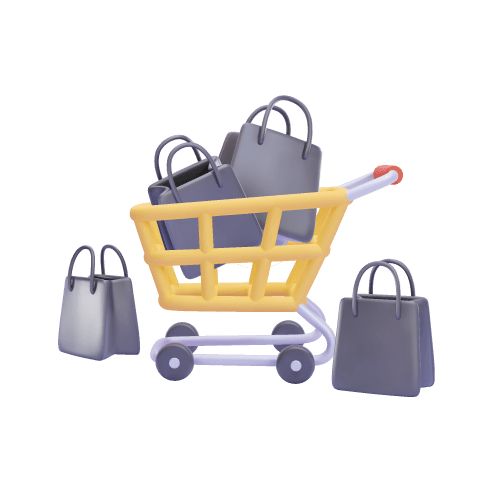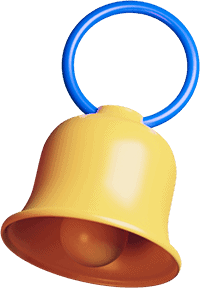Many clinical features of AUD have significant overlap with other psychiatric disorders, including sleep disturbances and negative emotional states such as worry, dysphoria, sadness, or irritability that often occur during cycles of alcohol intoxication, withdrawal, and craving. (See Core article on neuroscience.) As described in the sections to follow, a timeline of your patient’s symptoms is a key tool for a differential diagnosis. While many people suffering from anxiety attempt to self-medicate with alcohol, drinking can make anxiety worse. Alcohol can temporarily numb uncomfortable feelings, but not only do those anxious feelings resurface, they often come back with even greater intensity. Moreover, alcohol can impair our decision-making and judgment, leading us to act in ways that don’t align with our values.
Alcohol’s Effects
Treatment providers can connect you with programs that provide the tools to help you get and stay sober. Your partner, parents, children, friends, employer, coworkers, doctor, or therapist might confront you about your drinking habits or your behavior when you drink. The symptoms of a hangover, such as nausea and vomiting, dizziness, dehydration, and low blood sugar, can make it hard to function. If someone is sick because of a hangover, they might not be able to attend to their responsibilities at home, school, or work—which can, in turn, fuel their anxiety. There are several actions that could trigger this block including submitting a certain word or phrase, a SQL command or malformed data. AUD is a chronic condition that includes a variety of effects on the mind and body.
Lifestyle changes and treatment options for anxiety
However, people with anxiety disorders frequently have intense, excessive and persistent worry and fear about everyday situations. Often, anxiety disorders involve repeated episodes of sudden feelings of intense anxiety and fear or terror that reach a peak within minutes (panic attacks). If you’re suffering from addiction to how to detox from marijuana in 2023, it can seem overwhelming to get help. A lot of people view alcoholism as the more immediate danger, but without treating the underlying anxiety, you’re more likely to relapse. Finding a place that understands how to treat your anxiety disorder can be the difference between failure and long-term recovery. If you don’t know where to turn to and need help figuring out your next steps, contact a treatment provider.
- For anyone prone to anxiety, it can be easy for one drink to turn into more and lead to a growing dependence on alcohol.
- Also, this review does not address potentially important individual differences, such as sex.
- Examples of anxiety disorders include generalized anxiety disorder, social anxiety disorder (social phobia), specific phobias and separation anxiety disorder.
- Even if you’re consuming a standard amount of alcohol — a 12-ounce beer or a 5-ounce glass of wine — you’ll experience a mild detox or withdrawal.
- When patients have sleep-related concerns such as insomnia, early morning awakening, or fatigue, it is wise to screen them for heavy alcohol use and assess for AUD as needed.
Sleep disruption
It is possible, however, that some of these studies might have excluded subjects with more severe anxiety or depressive disorders from the original samples, and consequently more work in this area is required (Kushner 1996). The self-medication explanation for the comorbidity of anxiety and AUDs has received the most attention in the clinical and research literature. This model proposes that people with anxiety disorders attempt to alleviate negative consequences of these conditions (i.e., are negatively reinforced) by drinking alcohol to cope with their symptoms, eventually leading to the later onset of AUDs. This concept, in fact, is shared by several models of alcoholism, including the self-medication (Khantzian 1985; Quitkin et al. 1972), tension reduction (Conger et al. 1999), and stress-response dampening models (Sher 1987; Sher and Levenson 1982). When people with comorbid anxiety and AUDs are queried about their drinking, they typically endorse purposeful and targeted drinking to cope with their anxiety.
About our health information
Anxiety symptoms include feeling tense, nervous, and uneasy, in addition to a variety of physical symptoms such as sweating and increased heart rate.¹ It’s only human to seek relief from discomfort, and given alcohol is a depressant, it can temporarily soothe some of these symptoms. However, once the initial effects of alcohol wear off, anxiety can spike again and with more intensity. Many people continue to drink in an effort to avoid this, creating an unhealthy cycle.
As many as 80 percent of alcoholics report periods of sadness in their medical histories, with approximately one out of three alcohol-dependent men and women having experienced a severe depression that lasted for at least several weeks and interfered with his or her functioning (Brown and Schuckit 1988; Winokur 1983). Similarly, the majority of alcoholics admit to experiencing periods of nervousness, including at least 40 percent who have had one or more intense panic attacks characterized by a brief episode of palpitations and shortness of breath (Kushner et al. 1990). CPsychotherapies for alcohol use disorders are those with support in a majority of reviews, as identified via the systematic analysis of Miller and colleagues (2005). Twelve-step facilitation was added based on published empirical support (e.g., Project MATCH Research Group 1997, 1998; McKellar et al. 2003; Tonigan 2009).
Although these studies raise important questions, researchers cannot draw definitive conclusions about the association between alcoholism and psychiatric disorders for a number of reasons. The major problem encountered in these studies involved the use of research methods that failed to address salvia drug overview several important issues that might have explained the observed relationships (Allan 1995; Schuckit and Hesselbrock 1994). Specifically, some studies focused on drinking patterns rather than on alcohol dependence or described mood/anxiety symptoms rather than true psychiatric disorders.
In this situation, a person expects to get relief from their anxiety symptoms when they consume alcohol because of its effect on the central nervous system (CNS). While small amounts of alcohol may activate GABA and cause you to relax, heavier drinking can sap GABA. While dopamine increases immediately after drinking alcohol and temporarily makes you feel good, when the inebriation has faded, whatever symptoms that were being avoided rebound. Research shows that people with alcoholism find it difficult to recover from traumatic events. This is possibly because of the effects of alcohol abuse, which can actually change brain activity.
However, over time or in excess amounts, drinking alcohol can lead to increased levels of anxiety and stress. Is it because you’re genuinely enjoying time with your friends or family, or are you trying to relieve taxing feelings you’ve been dealing with? Have a sober hang with friends, go on a hike or walk, read a book, or host a movie or Netflix night. “Hangxiety” is a term used to describe a feeling of nervousness or unease after drinking alcohol. Usually, these symptoms of irritability or a sense of apprehension begin about eight to 12 hours after drinking, as the effects of alcohol wear off.
While alcohol might feel like a solution in the short term, this drinking behavior comes with many problems. When people use alcohol to relieve symptoms of a mental health condition, it can quickly become a “crutch.” In some cases, a person who drinks alcohol to relieve feelings of anxiety might end up drinking more because they expect alcohol to provide a certain amount of relief from their anxiety symptoms. Alcohol can also make anxiety worse because it affects the levels of other mood-influencing chemicals like serotonin.
Research notes that changes in chemical levels such as serotonin can cause anxiety disorders and depression. According to the Anxiety and Depression Association of America (ADAA), about 7 percent of Americans have this form of anxiety. If you’re experiencing recurring episodes of hangxiety when you drink alcohol, it could be a sign that you have an underlying mental health condition or alcohol use disorder. When psychosis is suspected, a general physical and neurological exam should be performed to exclude medical causes such as subdural hematoma, seizures, or hepatic encephalopathy—any of which may be a consequence of AUD. Again, it’s important to create a timeline of mental health symptoms and alcohol use and to collaborate as needed with mental health specialists for selection of pharmacotherapies and psychosocial interventions.
But once you start drinking, you can build a tolerance to the de-stressing effects of alcohol. When dealing with stressful days or nervous situations, you may be tempted to have a glass of wine or a beer to calm your nerves. However, drinking how long does it take to detox from alcohol timeline and more alcohol, especially heavily and over a long period of time, can actually increase your anxiety. Aside from the well-known physical symptoms of a hangover, you may have noticed that you feel more anxious the day after drinking.













نظرات کاربران